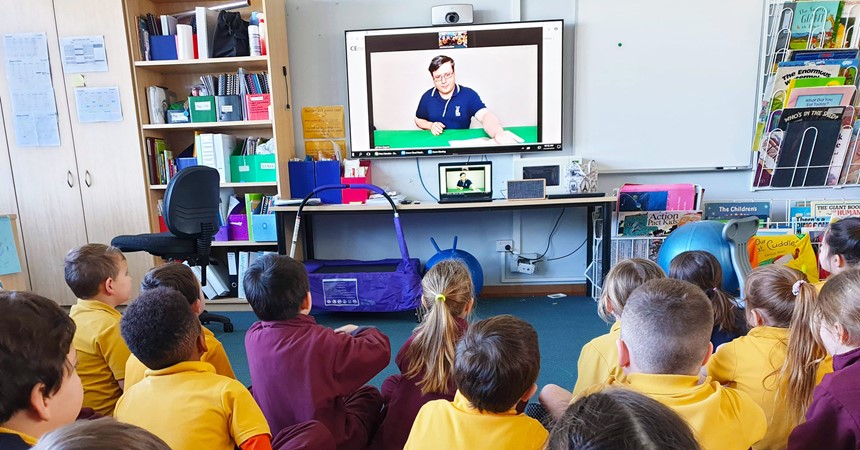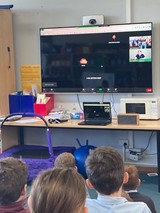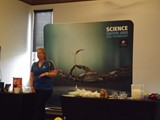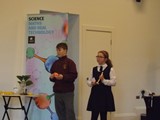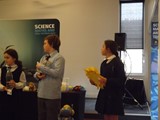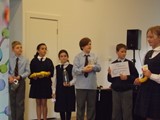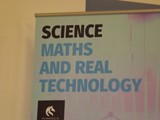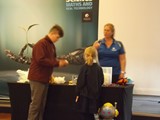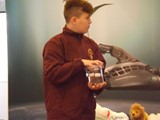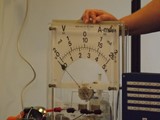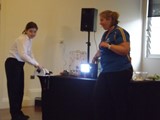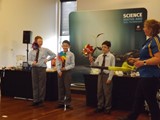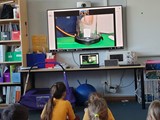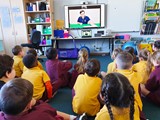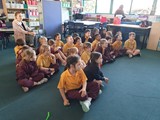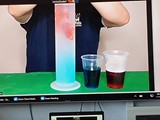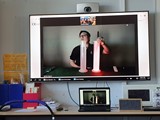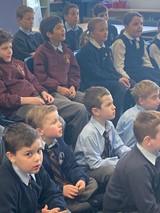At the beginning of the week the students were given a series of experiments to do at home and asked to video the results. While they were busy experimenting at home, they were also investigating renewable energy sources, the interaction of saltwater and freshwater, water pressure, and saltwater dispersing light.
One of the experiments involved using shaving cream, a glass of water, and food colouring to investigate the way in which clouds hold water. Another experiment used soap and milk to investigate surface tension. Students also constructed paper hovercraft to investigate using air to float across surfaces. Eggs were brought into play to investigate the way in which objects float differently in saltwater and freshwater.
The home experiments, however, were just the tip of the iceberg. At the beginning of the week, the University of Newcastle’s SMART (Science Mathematics and Real Technology) group visited us and set up a series of renewable energy experiments in our school hall. The students, in stage groups, took turns during the day to visit the hall and conduct some experiments and hear about a few of the many renewable energy sources that are available and used by different organisations. Did you know that instead of bubble wrap we can use a material made from potato starch to protect fragile objects? Or that LED lights use far less energy than normal filament lights.
On the Wednesday 20 and Thursday 21 August of Science Week the students participated in an online workshop. Our infant classes used our videoconferencing room to participate in the workshop while our primary students used their own devices. During the online science workshop, the children learnt about the animals that live in the oceans and why the deeper you dive the darker it gets. They also took part in some online experiments that explained how water has weight and exerts increasing pressure on objects the deeper you go. Our primary students used sultanas and lemonade to investigate the interaction of water and air.
To see the results of the home experiments and photos of our virtual workshop, visit our school’s Facebook page.
To find out more about St Francis Xavier's, Belmont or to enrol your child, please click here.

